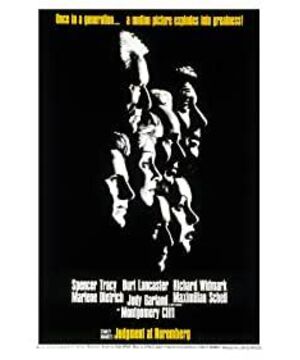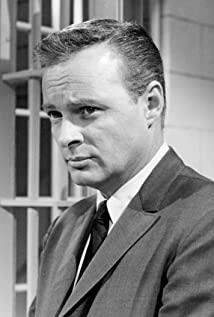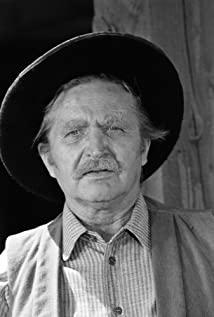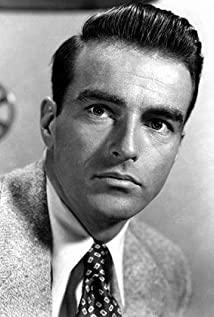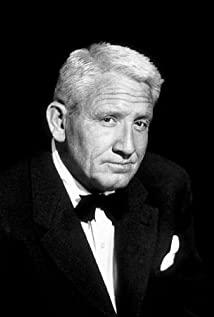passionfly of Nazi Germany
"The Nuremberg Trial" is indeed a movie that can stand the test of time. Germany is worthy of being the cradle of philosophy and art, and the temperament of Germans is worthy of the blending of sensibility and reason, and it will give birth to great artists and thinkers like Bach, Beethoven, Hegel, and Kant. In "The Nuremberg Trials", Mrs. Burholt, played by Marlene Dietrich, told Judge Heywood: "I hope you understand German. German is very beautiful and very sad. It is much sadder than English. The German soldier knows that he will lose his girlfriend and life. "Then he began to translate the lyrics of "Lili Marleen" for him: "The light burns every night, it knows your footsteps and where you are going. It burns every night and I have been forgotten, if I get hurt Someone is with you, next to you under the lights, Lily Marlene." (The lantern burns everynight. It knows your steps and the way you walk. It burns everynight but I've been long forgotten. Should harm come to me , who will stand with you, under the lantern with you, Lili Marleen.)
is this song "Lili Marleen", which became the embarrassment of Nazi Germany during World War II. The following are the lyrics of "Lili Marleen"——
[German original] Lili Marleen
-----------------------
Musik: Norbert Schultze, 1938 Text: Hans Leip, 1915 Sing: Lale Anderson
Vor der Kaserne, vor dem grossen Tor
Stand eine Laterne und steht sie noch davor
So wollen wir uns da wiedersehen. Bei der Laterne wollen wir stehen
Wie einst, Lili Marleen. Wie einst, Lili Marleen
Unsere beiden Schatten sahen wie einer aus
Dass wirten so lieich uns hat man daraus
Und alle Leute sollen es sehen wenn wir bei der Laterne stehen
Wie einst, Lili Marleen. Wie einst, Lili Marleen
Schon rief der Posten: Sie bliesn Zapfenstreich
Es kann drei Tage kosten! Kamerad, ich kosten
Wie einst. gerne wuerde ich mit dir gehen
Mit dir, Lili Marleen! Mit dir, Lili Marleen!
Deine Schritte kennt sie, deinen schoenen Gang
Alle Abend brennt sie, doch mich vergass sie lang
Und sollte mir ein Leid geschehen? Wer wird bei der Laterne stehen?
Mit dir, Lili Marleen! Mit dir, Lili Marleen!
Aus dem stillen Raume, aus der Erde Grund
Hebt mich wie im Traume, dein verliebter Mund
Wenn sichd dieheneten werde ich bei der Laterne stehen?
Wie einst, Lili Marleen! Wie einst, Lili Marleen!
[English literal translation] Lili Marleen
-----------------------
Translated: Frank, 1998
At the barracks compound, By the entry way.
There a lantern I found. And if it stands today.
Then we'll see each other again, Near that old lantern we'll remain.
As once Lili Marleen.
Both our shadows meeting, Melding into one.
Our love was not fleeting, And plain to everyone.
Then all the people shall behold, When we stand by that lantern old.
As once Lili Marleen.
Then the guard to me says:"There's tap call, let's go. This could cost you three days."
"Be there in half a moment ." So that was when we said farewell.
Tho' with you I would rather dwell
With you Lili Marleen.
Well she knows your foot steps, Your own determined gait.
Every evening waiting for Me? A memery of late.
Should something ever happen to me, Who will under the lantern be
With you Lili Marleen?
From my quiet existence, And from this earthly pale.
Like a dream you free me, With your lips so hale.
When the night mists swirl and churn, Then to that lantern I'll return.
As once Lili Marleen.
[Chinese Lyrics] Lili Marleen
-----------------------
Translated by: passionfly, 2006.9.18 The
street lights stand outside the gate of the barracks ,
we are here Under the light, meet together.
I once said that I will always love you and
don’t separate. As always
, Lily Marlene is the same
as before, Lily Marlene,
our intimate figure is connected,
we are affectionate forever, the sky can be seen
by passers-by who are staring and lingering in
love The meaning is infinite, the lingering will not change
forever, Lily Marilyn
will not change, the
horn of Lily Marilyn has sounded, I will go back to camp for
a few days, sometimes this love will
let me stay with you for a moment
or take me, as you go go
with you, Lili Ma Lin
and walk away, Lili Ma Lin
lights burning every night
to illuminate your steps to guide you forward path
I was forgotten, or injury
who will be with you, snuggle beside
you, Lili Ma Lin
accompanied , Lily Marilyn
’s helplessness in the world, the lonely existence is
only your kiss, which brings me to my dreams.
When the night is foggy, it is the light that
takes me home and
come back by your side . Lily Marilyn
once, Lily Marilyn
[English lyrics] Lili Marleen
-----------------------
lyric: Tommie Connor, 1944 Sing: Marlene Dietrich
Underneath the lantern, By the barrack gate.
Darling I remember, The way you used to wait.
T'was there that you whispered tenderly,
That you loved me, You'd always be.
My Lilli of the Lamplight, My own Lilli Marlene.
Time would come for roll call, Time for us to part.
Darling I'd caress you, And press you to my heart.
And there'neath that far-off lantern light,
I 'd hold you tight, We'd kiss good night.
My Lilli of the Lamplight, My own Lilli Marlene.
Orders came for sailing, Somewhere over there.
All confined to barracks, was more than I could bear.
I knew you were waiting in the street,
I heard your feet, But could not meet.
My Lilly of the Lamplight, my own Lilly Marlene.
Resting in our billets, Just behind the lines.
Even tho' we're parted, Your lips are close to mine.
You wait where that lantern softly gleams,
Your sweet face seems, To haunt my dreams.
My Lilly of the Lamplight, My own Lilly Marlene.
[Song background introduction] "Lily-Marlene"
is an anti-war song popular from military radio , Is also a classic in the history of world popular music. During the First World War in 1915, German soldier Hans Leip wrote this poem on the Russian battlefield, and in 1938 Norbert Schultze composed it. Associated with this song are two famous women who sang it: Lale Anderson and Marlene Dietrich. Most of the love songs are sad and lingering, but listening to love songs in the bloody battlefield is more nostalgic for the good memories of the past. This is the most important reason for the popularity of "Lily Marlene": it is not only love that is consumed by war, but too many beautiful things are taken away by war...
The story of Lale Anderson (1905-1971) is fully revealed in Fassbinder's film "Lily Marlene". By virtue of the ambiguous relationship with the upper echelons of the Nazis, this woman rose step by step and became popular. She is the original singer of this song, and the original recorded version did not become popular. In 1941, a German radio station in Belgrade, occupied by Germany, began broadcasting "Lily Marlene" sung by Lale Anderson to all German soldiers. The content of this song evokes the soldiers' war exhaustion and evokes all the good memories taken away by the war. Soon, this German song broke the boundary between the Allied Powers and the Allied Powers and spread throughout the entire World War II battlefield. From the desert of Tunisia to the forest of the Ardennes, every 9:55 in the evening, the soldiers from both sides in the trench will tune their radios to Belgrade Radio to listen to the sad and lingering "Lily Marlene". Soon, the Gestapo banned the radio station on the grounds of disturbing the military's mind and suspicion of spying, and the female singer and related personnel were also driven into the concentration camp. However, "Lily Marlene" did not disappear. Instead, the singing became louder and louder, and Nazi Germany was also destined to perish.
Marlene Dietrich (1901-1992) is a famous German movie star and singer. Her bold, neutral appearance, smoking cigarettes in trousers, low, sexy and cold singing voice swept Berlin before World War II. In 1930, she starred in Joseph von Sternberg's movie "Lan Angel" and became popular on the big screen. Contrary to Lale Anderson, after the Nazis came to power, she resolutely left her motherland, became a citizen of the United States, and resolutely opposed the war. She played Mrs. Burholt in the movie "Nuremberg Trials" (1961). The listener's favorite is Lili Marleen (whether in English or German), which is not only a powerful weapon for accusing war and fascism, but also a nostalgia that can no longer be relieved. She made this song a commercial success. In 1937, Hitler offered her generous offer to ask her to return to China, but was refused. She has since drew a clear line with Germany and never set foot on the land of her hometown in her life. In the United States, she has achieved great success both on the screen and on the stage. In 1992, she died in Paris. In the end, her bones returned to Berlin, and the Germans still named a square in Berlin after her: Marena-Dietrich Square.
According to this song, there is also an adapted movie and an adapted novel.
View more about Judgment at Nuremberg reviews


